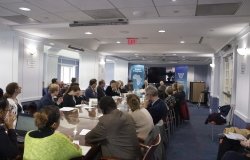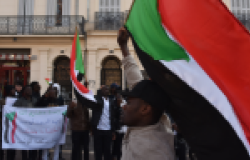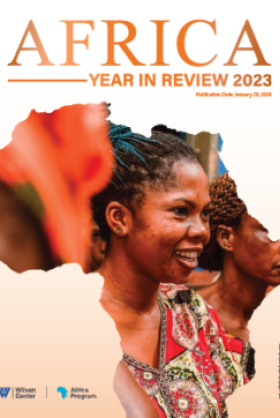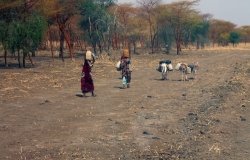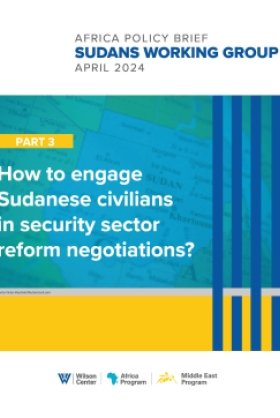How to Advance an Effective and Representative Sudanese Civilian Role in Peace and Governance Negotiations


Ten months after fighting broke out between the Sudanese Armed Forces (SAF) and the paramilitary Rapid Support Forces (RSF), Sudan remains a more divided and in desperate humanitarian condition than ever. The fighting has displaced 8 million Sudanese and left 18 million facing acute hunger. Humanitarian access remains severely restricted and the SAF and RSF seem determined to vanquish the other, a goal never achieved in Sudan’s previous decades-long civil wars. Civilian political and civil society actors are also becoming entrenched into rival groups. Divisions of Sudan’s civilian political actors in the past provided openings and justification for repeated military coups and governments.
The second discussion session, held on February 22, 2024, focused on how peace and future governance negotiations can be configured so that a diverse array of Sudanese civilian voices can be effectively heard and taken into account.
The Sudans Working Group (SWG) engages US, African, and international policymakers and stakeholders in inclusive and forward-leaning policy dialogue aimed at advancing the prospects for peace, security, and development between and within Sudan and South Sudan. The SWG serves as a space for key stakeholders to share analyses and perspectives and provide policy options for addressing critical issues related to the two countries. The SWG is currently co-chaired by Ambassador Nureldin Satti and Ambassador Donald E. Booth.
Related Programs

Africa Program
The Africa Program works to address the most critical issues facing Africa and US-Africa relations, build mutually beneficial US-Africa relations, and enhance knowledge and understanding about Africa in the United States. The Program achieves its mission through in-depth research and analyses, public discussion, working groups, and briefings that bring together policymakers, practitioners, and subject matter experts to analyze and offer practical options for tackling key challenges in Africa and in US-Africa relations. Read more

Middle East Program
The Wilson Center’s Middle East Program serves as a crucial resource for the policymaking community and beyond, providing analyses and research that helps inform US foreign policymaking, stimulates public debate, and expands knowledge about issues in the wider Middle East and North Africa (MENA) region. Read more
